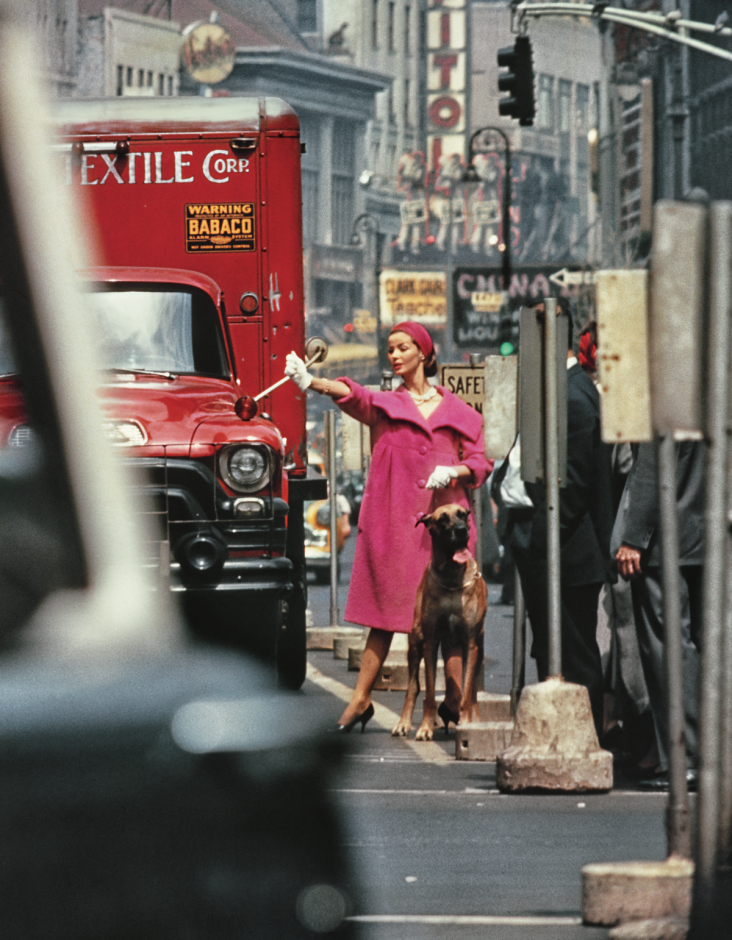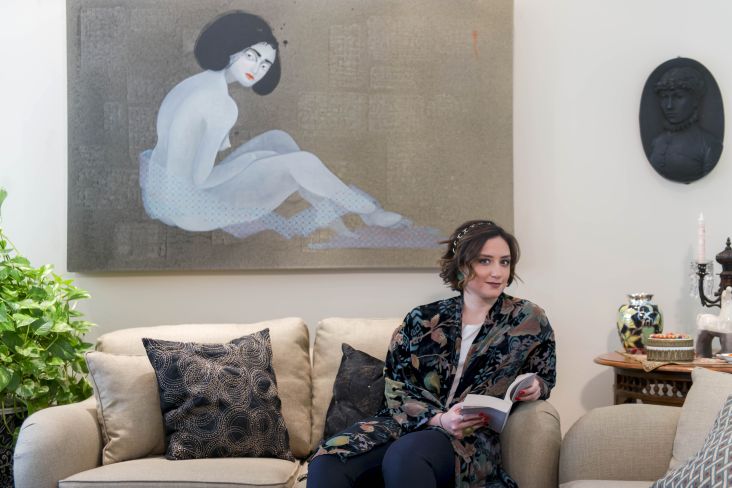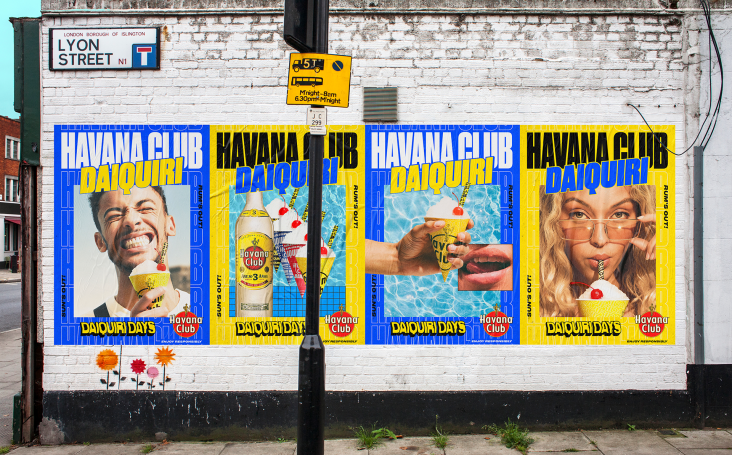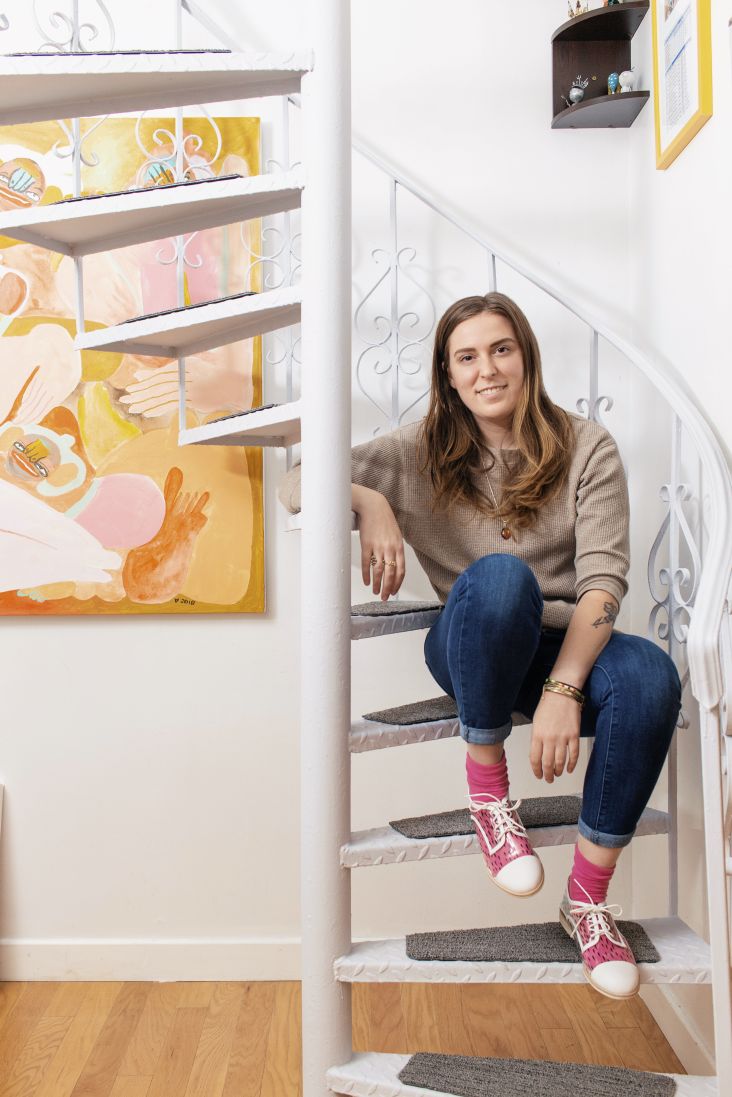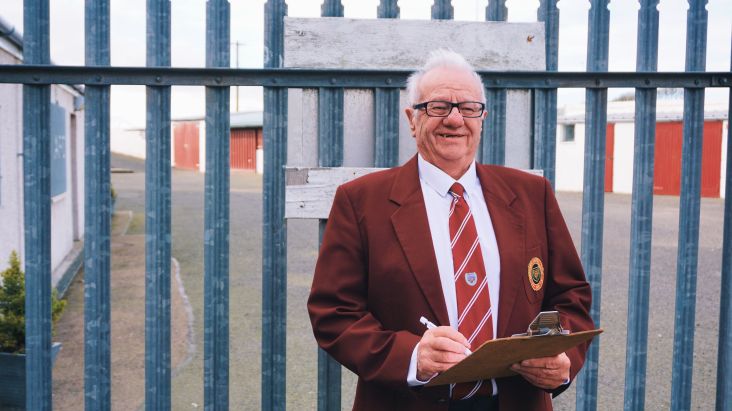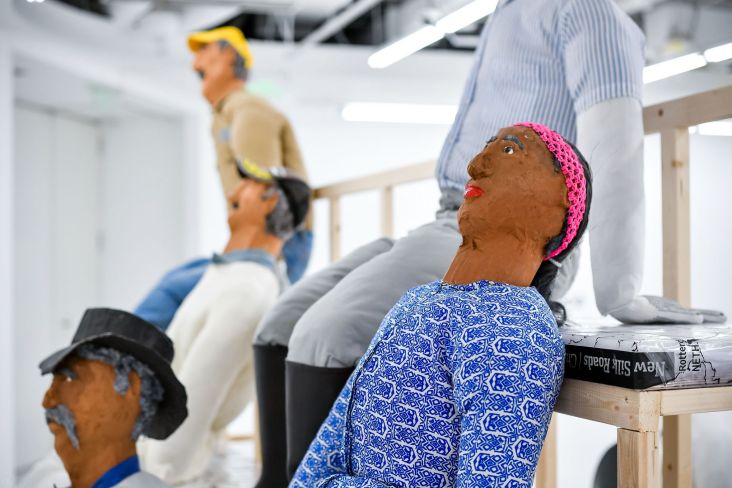Katie Cadwell on finding her true calling through MySpace and why it's a great time to be a woman in design
Katie Cadwell is a Welsh-born, Falmouth-raised designer, who’s been honing her creative craft at Bath's Supple Studio for the past five years.
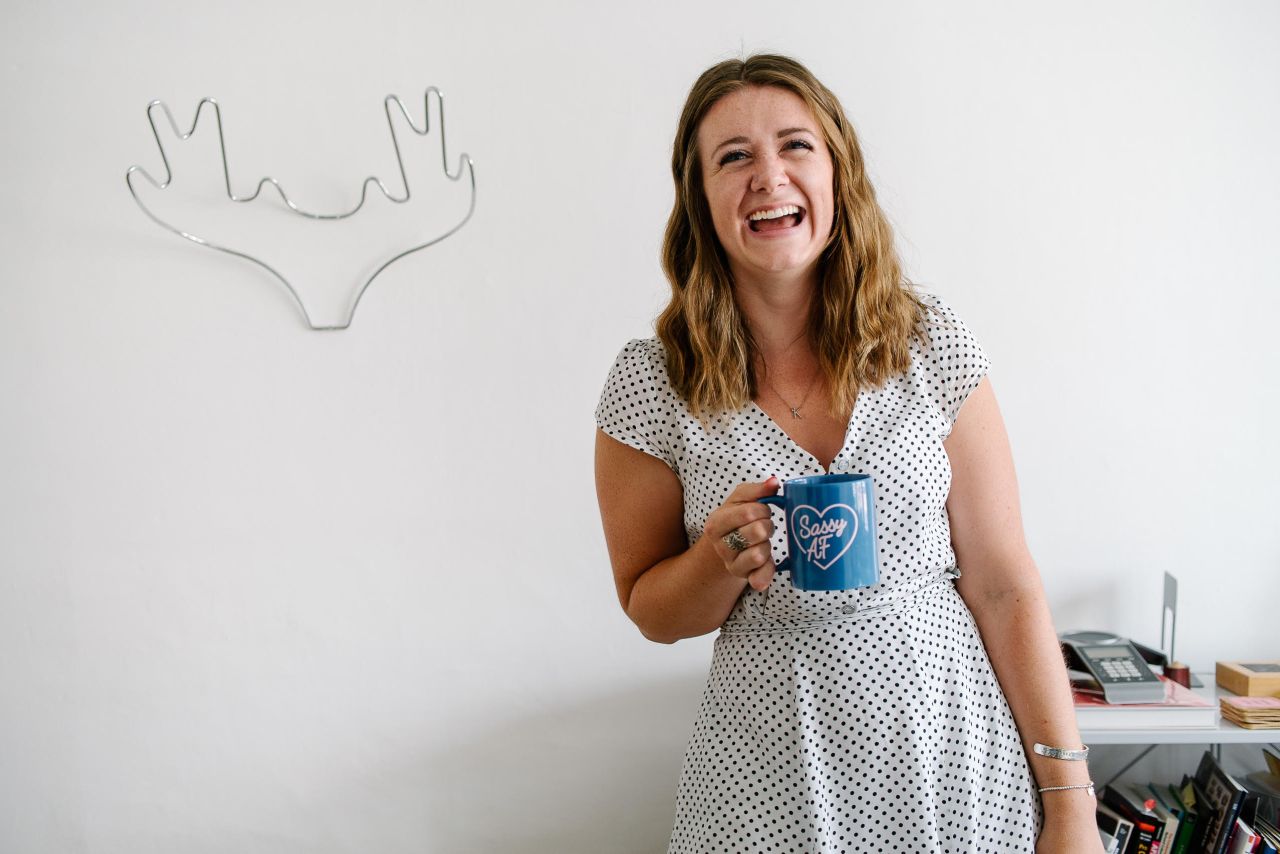
Photography by Morgane Bigault
During that time, she’s created stamps for the Suffragettes, been pegged as a "rising star" by our friends at Design Week and become a leading voice for women working in the design industries. She's also found herself promoted to senior designer and has worked with the likes of Royal Mail, National Trust and Channel 4.
Passionate about equality, using ideas for good, making logos move and the colour orange (currently), Katie also volunteers at the West England Design Forum and is a mentor for the University of the West of England. We spoke to Katie about her career so far and what she has planned next.
Tell us about how you got started
I wish I could say I fell in love with design ogling vinyl covers in record shops or designing gig posters on the college photocopier… but it’s nowhere near as cool.
I’m the MySpace generation so I actually started in HTML – trying to make my profile look better than everyone else's. I used to screenshot typefaces and erase the background pixel by pixel in Paint (!!) of all programmes.
What I wanted didn’t exist, so I just made it myself. Problem-solving, in retrospect, but at the time I was following my instinct and learning from the wealth of info online. And branding myself through MySpace of course.
Then I won a competition to create a name and logo for the local youth club (which still exists if anyone happens to be in the tiny Welsh village of Caldicot). It had an idea, and I adored telling people the reason behind it. That there’s more to it than just a logo. Plus seeing your work up on the side of a building doesn’t get old.
Was that when you found your calling?
I had no idea what Graphic Design was until I went to a college open day. I wish I could attribute the person who put my jigsaw together. "I like English, Photography, Art and ICT" and then a Yoda-like figure responds, "You should be a graphic designer".
Studying in the Welsh Valleys, where everyone went on to work in the steelworks, was not the most inspiring place. It wasn’t until I started thinking about university that the fire really got lit. Like those army adverts, I was born in Wales but I was made in Falmouth.
They gave me a chance on zero portfolio and a love of ideas. Then they spent three years teaching me all the rules, how to break them, and ultimately how to make a living doing what I love. I found my calling by the seaside.
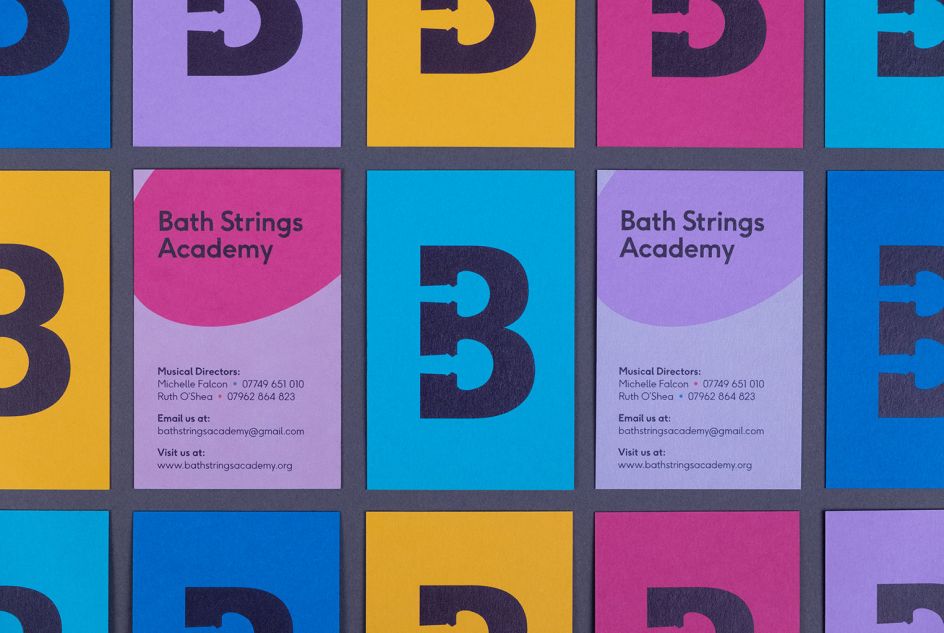
Identity for Bath Strings Academy
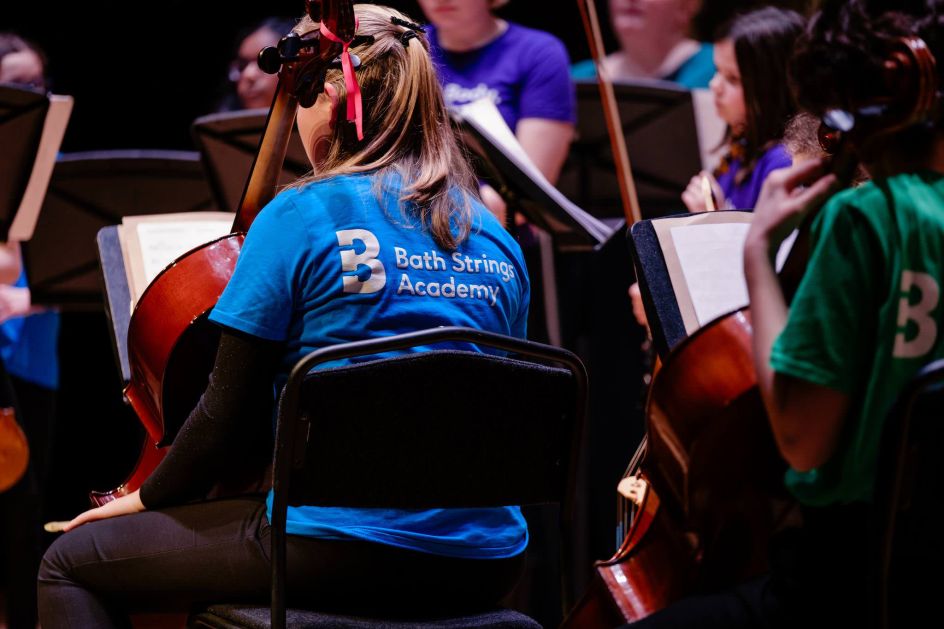
Identity for Bath Strings Academy
You're now at Supple Studio. What do you do there?
The short answer is lots of things. We’re a designer only team, which means we’re all designers, client-services, artworkers, project managers and more. It means I get to see my projects from start to finish, even tying the case study in a bow at the end. Ultimate job satisfaction.
But it does also mean my bread and butter love of designing gets cut short sometimes to make way for admin. That’s where animating really comes into its own – there’s no feeling like the instant gratification of bringing something to life. Except maybe your clients' enthusiasm when they see something move for the first time. Motion is in so much of what we do here now, I managed to carve my hobby into a big part of our process.
Sometimes we show stings at the very beginning to sell in branding concepts; it makes it so easy to visualise how far something can stretch when it’s alive in front of you. Add a cracking bassline and suddenly the energy in the whole meeting goes up a gear!
Was motion something you had to learn while at Supple?
It started at university. These days it feels like every graduate is expected to animate in some form, even in 3D, but there were only a handful of us in my year group who could.
There were some very rudimentary videos in my portfolio (all YouTube taught) and it’s what landed me my placement at Supple. My creative director saw the power in adding that string to the agency bow – and luckily saw past the slightly shoddy nature of my first motion attempts.
It was learning "on the job" from then on, and after hours in the early days. Truthfully, I discover something new each time I sit down to animate or a faster more effective way of doing something. I’m fortunate to be in an environment where we’re given time and space to develop the things we love. Cue excellent, always appropriate Bruce Lee quote, "Running water never grows stale".
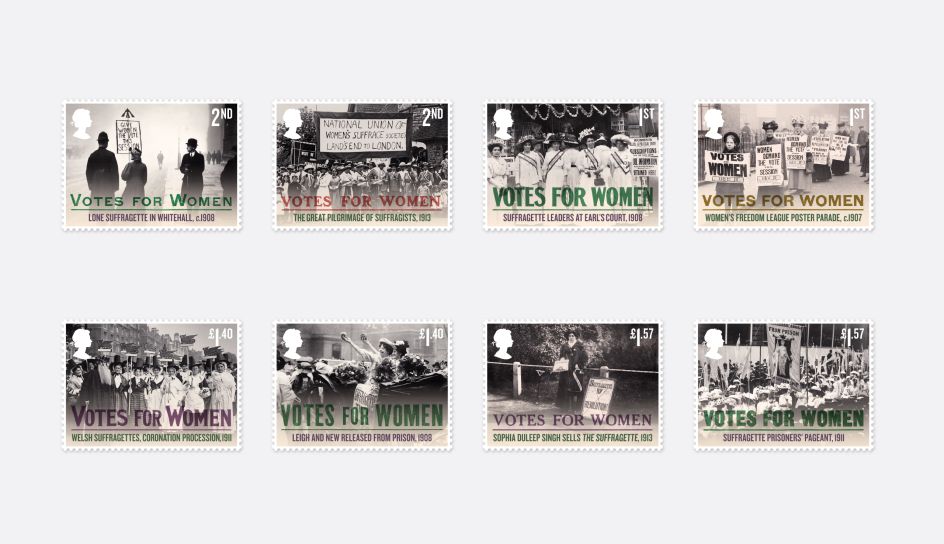
Royal Mail stamps celebrating the centenary of Votes for Women
Do you think every designer or illustrator would benefit from learning motion design?
Everyone does it to some degree – click-throughs on PDFs or GIFs as it's such a very fast way to communicate ideas.
But I think there’s something to be said for the "Jack-of-all-trades" (or Jill) analogy. It’s tempting to turn your hand to everything because everyone else is doing it, but then are you neglecting becoming a master in one thing?
I speak from experience as I’ve been dabbling in Cinema 4D recently, purely because it feels as though that’s the next big thing. But I’m rubbish at visualising in 3D and honestly, I’d rather become an expert at the things I do now. Give everything a try once, in case you’re secretly the bomb or you love it, but I think it’s okay to be brilliant at your thing. That’s what collaboration is for.
You do a lot for equality – do you feel a lot has changed for the better during your career?
It’s interesting to advocate for equality when you have no personal experience in the discrimination you’re fighting against (purely in a work environment, heaven knows I’ve seen it outside the safety of the studio walls). I’m very fortunate that in my career so far, being a "woman in design" hasn’t inhibited me at all. Maybe the opposite.
My gender is a power up to me – not only in my work but because the industry is different now. More aware. We’re on the precipice of huge change, and my being a woman at this time could be seen as an advantage.
Sometimes I feel conflicted about that, how can I advocate for others not to use my gender against me, but at the same time allow my gender to aid my progression? Then I think of all the women before me who would’ve loved to write articles/be role models for students, and be on talk line-ups but didn’t have the chance. They’d be saying, "You go girl" – so I shouldn't second guess every opportunity.
I try to remind myself that I am here because I’m good at what I do, and I happen to be a woman. To take each chance and celebrate the industry doing right by the historical injustices. I wasn’t even aware that being a woman in design was a thing until I graduated, and I bear the title quite begrudgingly. I don’t want others to define me by my gender, so I try not to define myself by it either.
Guerrilla campaign for the National Trust
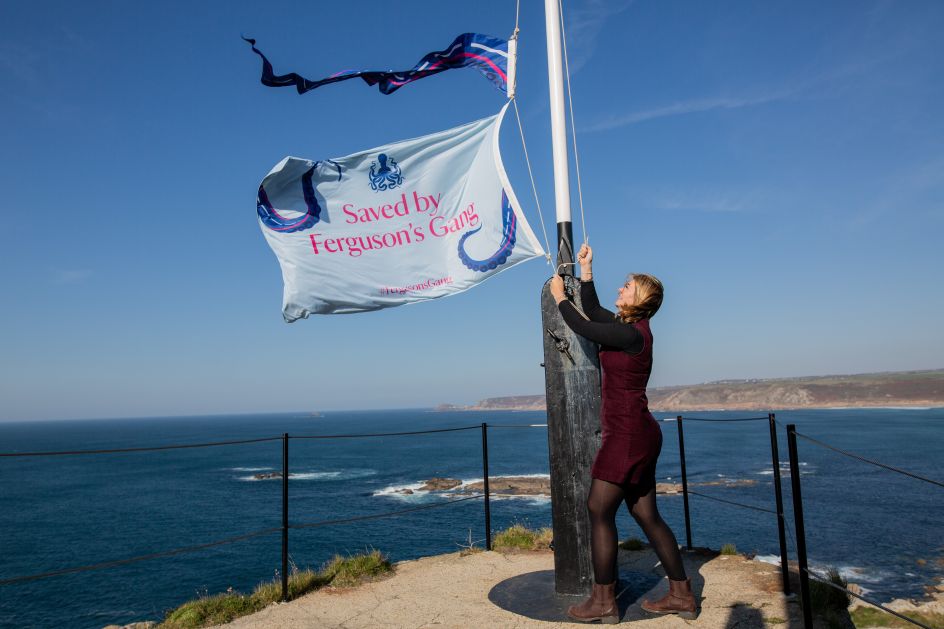
Guerrilla campaign for the National Trust. Photography by Paul Blakemore.
Is there anything about the creative industries that bugs you and you'd like to see change?
Egos. There seems to be this magical tipping point where you've been in the industry a certain amount of time so you believe you're allowed to say whatever you want. Especially online, and particularly about other projects or agencies.
This astounds me – we've all had clients and projects go awry, you have no idea what the process was to get to that point. But I'm sure it wasn't all smooth sailing. Have an opinion sure, but if it's not constructive, leave it for studio chat.
It means graduates are terrified of putting work out there because they feel it's going to get torn apart. I hope we can get to a point where all the brilliant things social media does for our industry outweigh the bad threads. I guess some people cannot turn the creative director in them off.
Also, I wish the gap was narrower between being fresh-faced and an expert. A bit like driving, it's easy to get irritated at learner drivers because we all lose touch of what that feels like. To be in charge of something scary (a car or a career) with no idea what direction to go in and how to steer.
I really want to remember feeling those things as a graduate to help stay grounded. Mentoring is one way of doing that but also speaking to students looking for their first placement. What incredible power we have – to give people who deserve it their first leg up into our world.
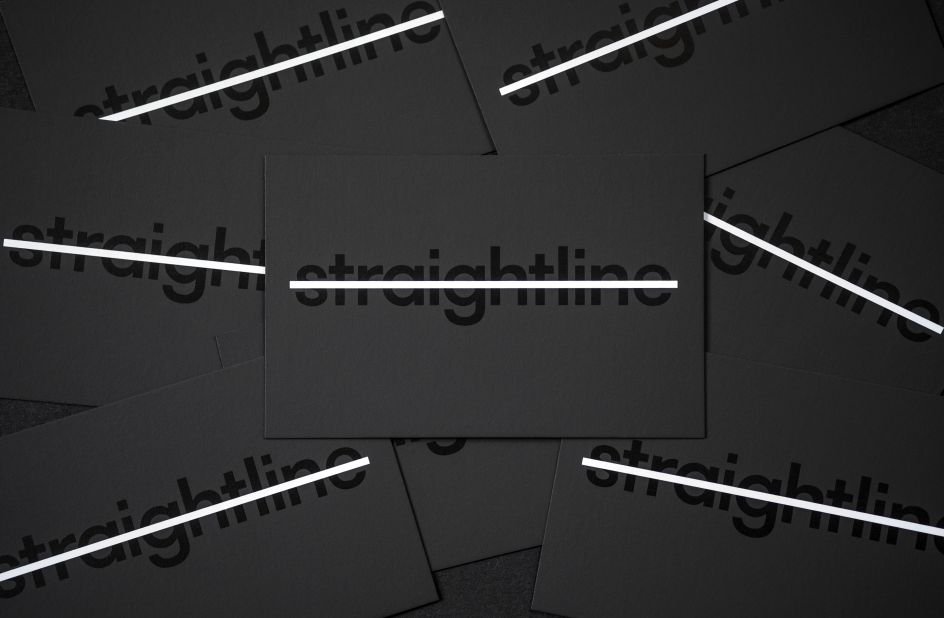
Branding for pilot app from Prison Radio Association
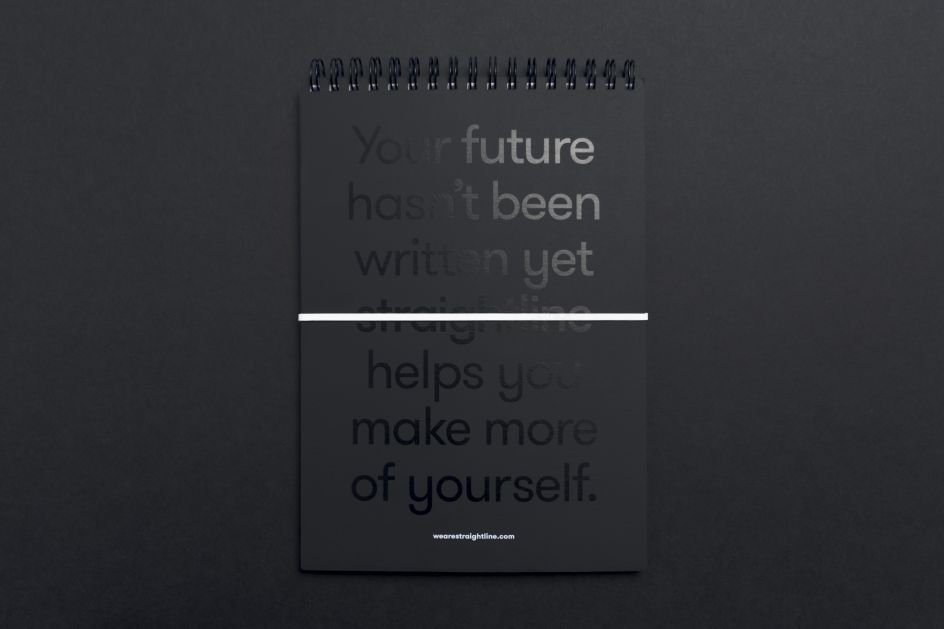
Branding for pilot app from Prison Radio Association
You're doing lots of talks now – how's that going?
A bit like getting a tattoo, afterwards I’m all excited and ready for the next one. But before each one, I’m questioning why I ever agreed to it. The more nervous I am, the better it goes usually. It’s immediately worthwhile the second I come off stage.
Pretty cool to have a room full of people who want to hear what you have to say. Or have no pre-conceptions of you, and come away with a (hopefully!) positive one. I'm always approached afterwards by young women or female students who are glad to see me up there, a small representation of what they're aiming for.
So I keep saying yes, and pushing myself to the limit of my comfort zone. Learning a lot from the people I have the privilege of sharing the stage with.
Any tips on public speaking? What's worked for you?
Umm... that's the main one. Once my (trying to be kind) husband pointed out my "umm" rate, I couldn't unhear it. It suggests a lack of confidence in what you're going to say next, which makes people uneasy. Take a moment to pause instead, it's better to slow it down. You can think in silence. Give everyone a moment to digest the last thing you said.
For me, I have to get a laugh within the first minute. Once that happens, I can breathe. It feels more like a conversation. Everything I talk about is hypothetical, caveated with "this is my experience, I hope this relates to you or helps you make your own conclusions" so it feels more casual, less preachy. That takes the pressure off so I can relax, which in turn means the audience relaxes. Plus, everyone in that room is rooting for you. Remembering that is important.
Finally, can I endorse a G&T?
What advice can you give to others just starting out and hoping to follow in your footsteps?
Go to everything. All the talks, workshops, anything that resembles a design community near you. It’s an industry built on people (both to get jobs and to get clients) so you just have to be a lovely person – and you have to be there for people to find that out. It’s much easier to remember a face than a twitter handle. Real life connections are much more powerful than how many followers you have.
Don’t get sucked into being cool, looking cool, or the pressure to put cool work out there that gets thousands of likes. Strive for longer lasting impressions than that, longer lasting relationships and real problem-solving. That’s the only way we’re going to make a difference, and guarantee a career beyond whatever trend is in right now. If you can do both, then good for you!
Be unapologetically passionate. Care about the details, fight for ideas you think are worth it. You’ll get burnt occasionally, and put back in your place if your head is too far above the parapet – but it’s better to be remembered for being ballsy than forgotten by the time the next placement is starting the tea round.

 for Creative Boom](https://www.creativeboom.com/upload/articles/06/063686a9a3b095b9b1f0e95df917ed4bd342be1b_732.jpg)


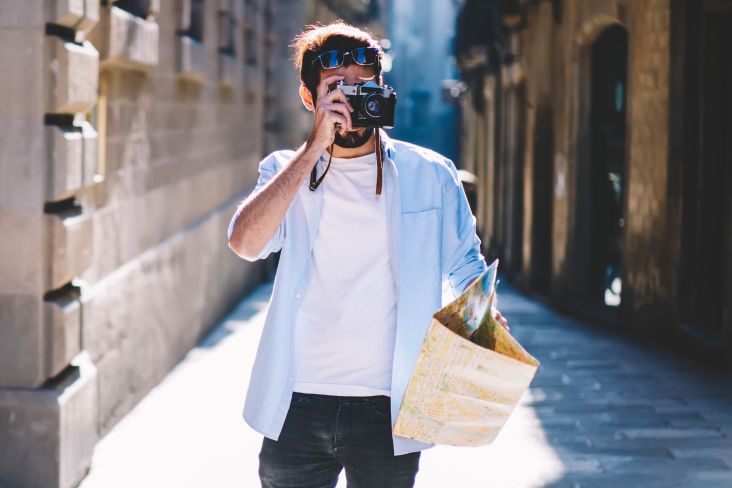
 using <a href="https://www.ohnotype.co/fonts/obviously" target="_blank">Obviously</a> by Oh No Type Co., Art Director, Brand & Creative—Spotify](https://www.creativeboom.com/upload/articles/6e/6ed31eddc26fa563f213fc76d6993dab9231ffe4_732.jpg)
 by Tüpokompanii](https://www.creativeboom.com/upload/articles/58/58684538770fb5b428dc1882f7a732f153500153_732.jpg)









